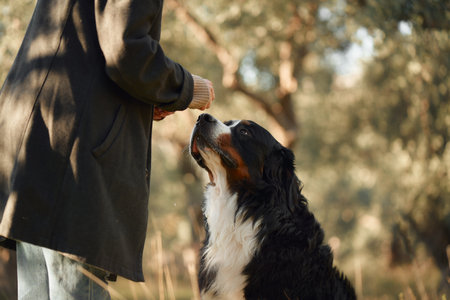1. Introduction: The Significance of Grief in Pet Ownership
For many people across the UK, pets are cherished family members and loyal companions, offering comfort, routine, and unconditional love. When a beloved animal passes away, the resulting sense of loss can be profound and deeply personal. Unlike other forms of bereavement, grieving for a pet may not always be publicly acknowledged or understood by wider society, leading to feelings of isolation among pet owners. In the UK, where pets are an integral part of daily life—whether it’s walking a dog through the countryside, sharing quiet evenings with a cat, or caring for small animals in urban flats—the impact of their absence is often underestimated. Recognising and validating this unique form of grief is crucial for emotional wellbeing. By exploring how the loss of a pet affects individuals in the UK context, we can better understand why acknowledging and supporting this experience matters—not only for healing but also for fostering empathy within our communities.
Understanding Shared Grief Among UK Pet Owners
Losing a beloved pet is a deeply emotional experience, yet the way grief is expressed and understood in the UK can be quite unique. Cultural attitudes towards mourning pets are shaped by a mix of stoic British reserve and growing public recognition of pets as family members. While it’s common for UK residents to quietly process personal loss, the collective experiences of bereaved pet owners are gradually fostering more open conversations around pet bereavement.
For many years, openly grieving the loss of an animal companion was often met with polite discomfort or minimised by others who may not fully grasp the depth of such relationships. However, recent shifts in societal perspectives have made it more acceptable to acknowledge this unique form of grief. Support groups play a crucial role in this change by providing safe spaces where feelings can be validated without judgement, allowing individuals to share their experiences and emotions freely.
The Evolving Attitudes Towards Pet Loss in the UK
| Traditional Views | Modern Perspectives |
|---|---|
| Grief kept private Limited public acknowledgment Pets viewed mainly as animals |
Open discussion encouraged Increased community support Pets seen as family members |
The Power of Collective Experience
The collective journey of bereaved pet owners across the UK reveals that shared grief can be transformative. When individuals come together in support groups, they often find comfort in recognising similar stories, emotions, and coping challenges. This sense of solidarity can help normalise feelings that may otherwise seem isolating or misunderstood.
Key Benefits of Shared Grief Among UK Pet Owners:
- Validation of emotions that might otherwise be dismissed
- Learning from others’ coping strategies and memorial practices
- Reducing stigma associated with pet loss through mutual understanding
- Creating lasting connections based on empathy and compassion

3. What Are Support Groups and How Do They Operate?
Support groups for pet loss are safe, understanding spaces where UK pet owners can come together to share their experiences of grief, listen to one another, and find comfort in knowing they are not alone. These groups are typically facilitated by trained volunteers or professionals who guide discussions and ensure everyone has a chance to speak. Many support groups operate in community centres, local charities, veterinary clinics, or even online forums tailored for British audiences.
The format of these gatherings can vary; some may be structured with set topics for each session—such as coping strategies, memorialising pets, or managing daily routines after loss—while others might offer open sharing sessions where members talk freely about their feelings. Importantly, these groups emphasise confidentiality, respect, and empathy, creating a non-judgemental environment that encourages honest expression.
Accessibility is a key focus within British communities. With the growth of digital platforms, many support groups now offer virtual meetings, making it easier for those in rural areas or with mobility challenges to participate. Some organisations also provide telephone support lines and resource packs for individuals unable to attend group sessions in person. Across the UK, pet loss support groups are becoming more visible and recognised as essential services. They often work closely with local vets, animal shelters, and mental health services to ensure that anyone experiencing the pain of losing a beloved companion knows where to turn for help.
4. Emotional and Practical Benefits of Supportive Networks
Support groups play a vital role in helping UK pet owners navigate the often-overlooked landscape of grief after losing a beloved animal companion. The emotional and practical advantages that these supportive networks offer can make a significant difference in how individuals process their loss and move forward.
Emotional Comfort Through Shared Experiences
One of the most powerful benefits of joining a support group is the sense of emotional comfort that comes from connecting with others who truly understand. In British culture, where the “stiff upper lip” approach to emotions is sometimes encouraged, it can be challenging to openly express grief—especially over pets. Support groups create a safe, non-judgemental space where feelings are validated and members can share memories, tears, and laughter without fear of stigma.
Reducing Stigma Around Pet Loss
Sadly, many UK pet owners encounter comments such as “it was just an animal” or feel embarrassed about their intense emotions. Support groups actively work to dismantle this stigma by acknowledging the unique bond between people and their pets. By normalising open discussions about loss, these networks help individuals feel less isolated and more understood within their communities.
Practical Coping Strategies for UK Pet Owners
Beyond emotional support, these groups also provide practical guidance tailored to the realities faced by British pet owners. Whether it’s advice on navigating local memorial options or tips for dealing with daily routines after loss, support networks empower members with actionable strategies to cope and heal.
Key Benefits of Pet Loss Support Groups in the UK
| Benefit | Description | UK-Specific Example |
|---|---|---|
| Emotional Validation | Recognising and accepting grief as real and important | Open conversations at local meetups or online forums like Blue Cross Pet Bereavement Support Service |
| Stigma Reduction | Challenging societal norms that minimise pet loss | Awareness campaigns during National Grief Awareness Week |
| Coping Strategies | Sharing practical advice for managing everyday life post-loss | Guidance on creating memory boxes or attending remembrance events at UK pet cemeteries |
| Community Connection | Building new friendships based on shared understanding | Local support groups meeting in community centres or online through organisations like The Ralph Site |
Nurturing Resilience Together
The combination of emotional validation, stigma reduction, practical advice, and community connection makes support groups an invaluable resource for those grieving a pet in the UK. By fostering an environment where every story matters, these networks nurture resilience and encourage healthy healing among all members.
5. Real-life Stories: Shared Healing in Local Contexts
Support groups offer more than just a safe space—they foster a sense of belonging and understanding that can be transformative during times of loss. Across the UK, pet owners have found immense comfort by connecting with others who truly understand their grief. Let’s explore some real-life stories that highlight the profound impact these groups have on individuals and communities.
Finding Comfort in Shared Experience
After losing her beloved Labrador, Ellie from Manchester felt isolated and overwhelmed by sadness. She joined a local pet bereavement support group, where she met others facing similar heartache. “Knowing I wasn’t alone made all the difference,” Ellie shares. “We could talk openly without judgement, and that openness helped me heal.” For Ellie, weekly meetings became an anchor, offering both reassurance and practical advice for navigating daily life after her loss.
Building Resilience Through Community
Tom, a retired teacher from Brighton, recalls how joining an online pet loss forum provided solace during lockdown. “The group was full of people from different walks of life, but our shared grief brought us together,” he explains. Through regular discussions and virtual meetups, Tom discovered coping strategies and even formed lasting friendships. “It’s not about forgetting your pet—it’s about learning to carry their memory forward with support from others.”
The Power of Testimony: Words That Heal
Many participants mention how hearing other members’ stories was a turning point in their journey. Sarah from Leeds describes how reading heartfelt testimonials gave her hope: “Seeing others come through their darkest days inspired me to keep going.” These testimonies, often shared in person or through digital platforms, create a ripple effect—encouraging newcomers to open up and start their own healing process.
Local Initiatives Making a Difference
From community halls in Glasgow to small coffee shops in Bristol, support groups are springing up across the UK with a distinctly local flavour. Organisers tailor sessions to cultural preferences—sometimes incorporating British tea rituals or nature walks to gently encourage conversation. The result is a network of caring spaces where every story matters, and every member is valued for their unique experience.
These genuine accounts demonstrate that when UK pet owners come together in support groups, they find more than empathy; they discover resilience, hope, and meaningful connections that help them move forward after loss.
6. How to Find or Start a Support Group in the UK
Finding support as a grieving pet owner can feel daunting, but you are certainly not alone. In the UK, there are several practical steps you can take to connect with others who understand your experience.
Finding Existing Pet Loss Support Groups
If you’re looking for an established group, start by checking with well-known organisations such as The Blue Cross, which offers pet bereavement support services. The PDSA and Cats Protection also provide guidance and sometimes host group sessions. Many veterinary clinics keep leaflets about local support networks and may be able to recommend a nearby group.
Exploring Online Communities
For those who prefer online interaction, British-based Facebook groups and forums like The Ralph Site cater specifically to UK pet owners experiencing loss. These spaces allow for anonymity if needed and often host regular virtual meetings, making it easy to connect from anywhere in the country.
Setting Up a New Support Group
If you cannot find a group that fits your needs, consider starting your own. Begin by reaching out within your community—local libraries, community centres, and even coffee shops often have noticeboards where you can post invitations. Social media platforms like Nextdoor or local Facebook groups are useful for spreading the word.
Resources for Organisers
The UK’s SAMH (Scottish Association for Mental Health) and Mental Health Foundation offer free guides on running peer support groups. They cover everything from setting ground rules to handling difficult conversations. You might also contact your local council, as many have officers dedicated to community wellbeing who can advise on venues or publicity.
Making Your Group Inclusive and Welcoming
Remember, British culture values kindness and discretion. When forming your group, emphasise confidentiality and respect for personal stories. A simple cup of tea at each meeting can go a long way in creating a safe and supportive atmosphere.
By taking these steps—whether joining an existing network or starting your own—you can help ensure that no one has to face pet loss alone. Together, we can nurture understanding and healing across our communities.
7. Conclusion: Fostering Compassion and Community for Bereaved Pet Owners
As we reflect on the significance of support groups for grieving pet owners in the UK, it becomes clear that compassion and community are vital threads woven into our shared experience of loss. In British culture, pets are cherished family members, and their absence leaves a profound gap in our daily lives. Yet, despite this deep bond, many bereaved owners still feel isolated or misunderstood when mourning their animal companions.
The presence of empathetic support groups offers a safe haven where individuals can share memories, express emotions freely, and find solidarity among others who truly comprehend the unique pain of pet loss. These spaces help dismantle lingering stigmas around grief and encourage open conversations, reinforcing that it is entirely natural to mourn a beloved pet.
Importantly, fostering such communities requires ongoing effort from all corners of UK society—veterinary professionals, local councils, charities, and individual pet lovers alike. By prioritising understanding and kindness, we can ensure that no one faces their grief alone. Support groups not only comfort those in immediate need but also strengthen our wider culture of responsible and compassionate pet ownership.
In summary, embracing compassion and community within the UK’s pet ownership landscape will continue to empower those navigating loss. Whether through formal support networks or simple acts of neighbourly kindness, we can collectively nurture an environment where every bereaved owner feels seen, heard, and supported as they honour the memory of their much-loved companions.

